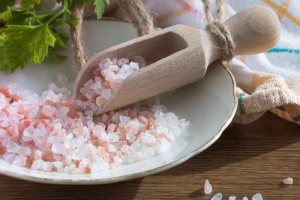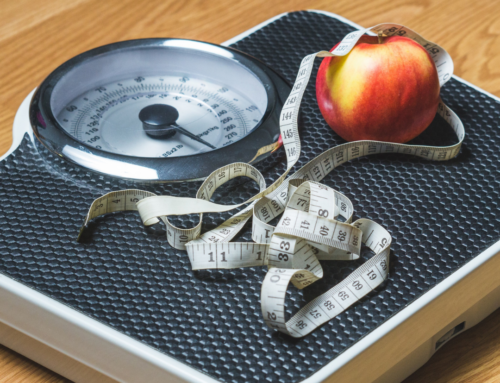 Did you know that Iodine is such an essential element that the human body can’t function without it? Many people falsely assume that iodized table salt offers an adequate daily amount.
Did you know that Iodine is such an essential element that the human body can’t function without it? Many people falsely assume that iodized table salt offers an adequate daily amount.
For decades, Terri DeNeui, DNP, ACNP, APRN-BC, founder of EVEXIAS Medical Centers, has advocated for the importance of an appropriate level of iodine in the body.
“In many ways, iodine is an unsung health hero,” she said. “The thyroid requires 3 mg of iodine per day and this quantity is much higher than the normal person will take in on a daily basis.”
Low iodine levels are linked to increased risk of breast, thyroid, and prostate cancer. The thyroid glands soak up so much of the iodine that enters our bodies that the other glands become iodine-deficient, according to DeNeui.
In the book titled “Salt Your Way to Health”, Dr. David Brownstein explains the role that natural salt – sea salt or pink Himalayan salt – plays in decreasing blood pressure and other diseases.
 Himalayan salt contains more than 90 minerals and is less processed. Unlike table salt, it usually does not contain additives. Adding a pinch of pink salt to meals or drinks helps your body stay hydrated, according to a recent article featured in Medical News Today.
Himalayan salt contains more than 90 minerals and is less processed. Unlike table salt, it usually does not contain additives. Adding a pinch of pink salt to meals or drinks helps your body stay hydrated, according to a recent article featured in Medical News Today.
Table salt, which is sodium chloride, is produced in a lab and is not a natural substance.
“I advise all of our patients to toss out that common table salt and use Celtic sea salt or pink Himalayan salt,” DeNeui said. “When this happens, they see a vast improvement in their overall health.”
Are you getting enough iodine in your diet? Contact us and find out.
It is a common misconception that we get the required amount of iodine from iodized table salt. Once a container of iodized salt is opened, the iodine evaporates within three weeks.
“Even if someone heavily salted their food with iodized salt, this would only result in .444 mg of iodine being added to their body,” DeNeui said. “This is considerably less than the suggested daily intake of 3 mg.”
Many health experts, such as DeNeui, disagree that salt is responsible for many unhealthy conditions.
“Over the past 30 years, the CDC’s own data have shown little evidence that salt increases the incidence of hypertension and heart disease,” she said. “These conditions are actually caused by a low level of minerals in the body.”
Reductions of iodine in baked goods over the years
 About 50 years ago, iodine was found in commercially baked goods. In more recent years, food companies have stopped using iodine and replaced it with bromides, a compound that strengthens dough to increase shelf life.
About 50 years ago, iodine was found in commercially baked goods. In more recent years, food companies have stopped using iodine and replaced it with bromides, a compound that strengthens dough to increase shelf life.
As a result, more people are at risk of chronic toxicity from bromides that may lead to neurological disorders or skin eruptions. Bromides are banned in several European countries.
“Since iodine has been eliminated from baked goods, we have also seen a rapid increase in breast cancer in the United States,” DeNeui said.
A lack of iodine in your diet can wreak havoc on your body. Let us help you get your health back in balance, naturally.
Take a few minutes and fill out this no-obligation questionnaire.






